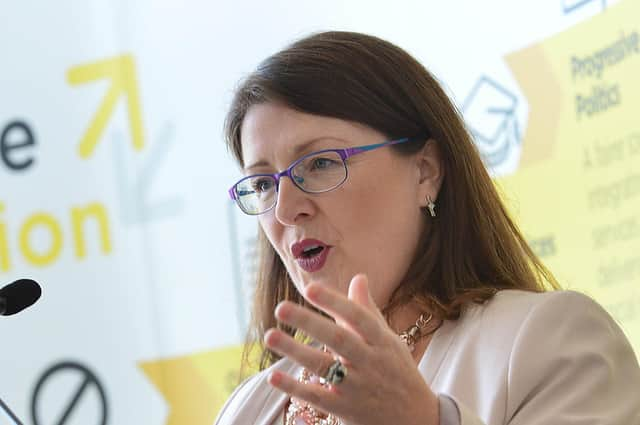Fears of ‘two-tier’ school system


Gerry Campbell, chief executive of the Council for Catholic Maintained Schools (CCMS), was speaking as the Stormont education committee took views on the proposed legislation by Alliance MLA Kellie Armstrong.
Currently there is legislation which obliges the Department of Education to encourage and facilitate integrated education.
Advertisement
Hide AdAdvertisement
Hide AdMs Armstrong’s bill proposes the setting of minimum targets for the number of children being educated in integrated schools, as well as providing dedicated funding for facilitation of the sector.
Currently just 7% of children in Northern Ireland attend schools in the formally integrated sector.
The committee heard views on the bills from CCMS as well as the Transferor Representative Council made up of the Protestant churches as well as Children’s Commissioner Koulla Yiasouma.
Bishop Donal McKeown said it was “in many ways a very radical piece of legislation”, and also a “very narrow piece of legislation”.
Advertisement
Hide AdAdvertisement
Hide Ad“All our schools would intentionally promote an ethos of diversity and so on, this is a bill which says that really can only be promoted in one sort of school,” he told MLAs, adding it “looks at a structure rather than an outcome”.
Mr Campbell said CCMS is concerned that the draft bill “does not appear to recognise the contribution of and the diversity of the Catholic maintained sector and its schools”.
He said 44% of parents express preference for a faith-based education, and said Catholic-maintained schools are open to all faiths and none.
“Catholic education is naturally inclusive and provides the opportunity for holistic growth, academic excellence and achievement for all,” he said.
Advertisement
Hide AdAdvertisement
Hide Ad“In a mature society, it is essential that parents, carers and learners have the freedom to exercise the right to articulate a preference for the school that best suits their needs and philosophical beliefs.”
DUP MLA Robin Newton asked the delegation if they believed the proposed legislation might result in the Catholic sector becoming regarded as “second class educators”.
Mr Campbell responded: “I think very clearly if there was a promotion of one sector above all others that is a two-tiered system.”
The delegation representing the Transferor Representative Council included Dr Andrew Brown and Karen Jardine from the Presbyterian Church, Dr Peter Hamill of the Church of Ireland and Dr Antia Gracie of the Methodist Church.
Advertisement
Hide AdAdvertisement
Hide AdMr Brown described the body as involved in education for a century after schools run by the various churches were transferred to the control of the state, becoming the controlled sector as it is today known.
He said the churches retain a “degree of influence and involvement” within the education sector, such as sitting on boards of governors of controlled schools.
Ms Gracie said the TRC is “very much in favour of educating the whole community together”, adding that controlled schools in areas of high levels of ethnic and cultural diversity “have become the most diverse school communities of any sector”.
She said controlled schools educate “at least 30% of all newcomer students in Northern Ireland”.